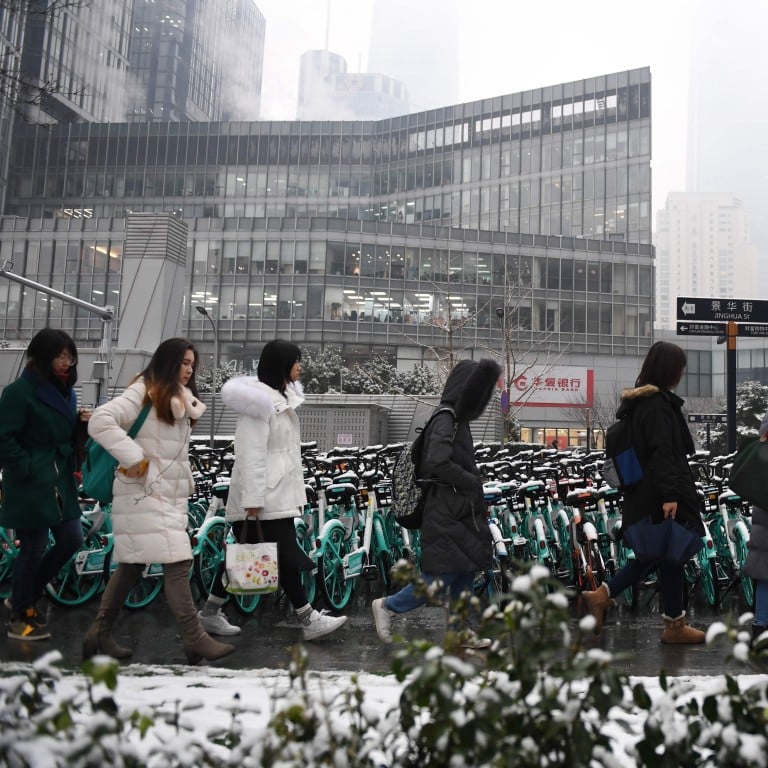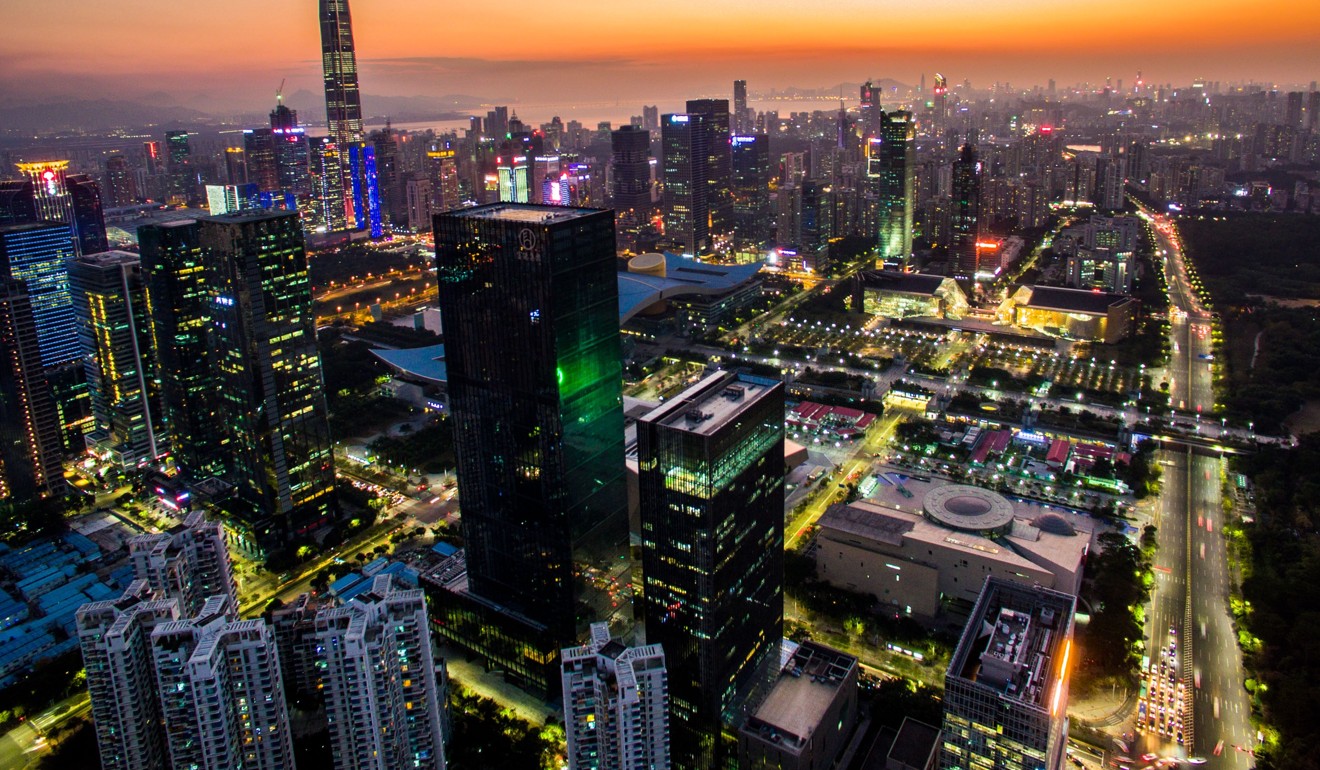
How urban life takes its toll on residents of China’s biggest cities
- Chinese Academy of Social Sciences’ Blue Book of Social Mentality 2019 reveals differences in life across cities and gulf in satisfaction between sexes
- As result of rapid urbanisation, 60 per cent of China’s population lives in cities today compared with 25 per cent about 30 years ago
Residents of China’s biggest cities face far more pressure in terms of housing, income, employment, and supporting children and the elderly than those in other cities, a study by a state think tank showed.
While income and employment are the two most important factors affecting the happiness of Chinese urban dwellers, regardless of their city size, those who earn no more than 7,000 yuan (US$1,003) a month endure greater stress if they live in Beijing, Shanghai, Shenzhen and Guangzhou, according to the study by the Chinese Academy of Social Sciences.
Traffic is also a major source of stress for residents in the four cities, according to the Blue Book of Social Mentality 2019, which examined life in more than 340 cities.
They also are most unhappy about their marriages compared with people from smaller cities, it said.

The findings were based on a survey of more than 22,000 people aged between 18 and 70 from six types, or tiers, of cities assessed by factors including size, population and GDP.
“Over the past decade, home prices in Beijing, Shanghai and Shenzhen have surged to a level that is unreachable for most people. There’s also been quite a big increase in second, third-tier cities or even smaller ones,” said the study, an annual report on attitudes to life found across Chinese society.
“The same is true with traffic. Though there is better infrastructure in big cities, people feel more pressure as [the cities] are more populous and larger in size,” it said.
Hong Kong happiness declines, survey shows, with quality of life sinking and ‘alarming’ results for mental health amid protest crisis
While men in urban China generally felt more stress, women worried more about medical care and were less happy about their marriages, the study said.
There is a “considerable difference” between the two sexes’ satisfaction with their marriages, it said, adding that men aged 50 or more were the happiest husbands compared with those in other age groups.
However, overall, women’s mental health was better than men’s.
Women were “more adaptable to the environment, care more about self-development, more capable of enjoying intimate relationships, and have clearer life goals”, it said.

China has witnessed some of the world’s fastest urbanisation over the past decades.
In the late 1980s, about 25 per cent of its population lived in cities. By last year, this rate has grown to nearly 60 per cent.

